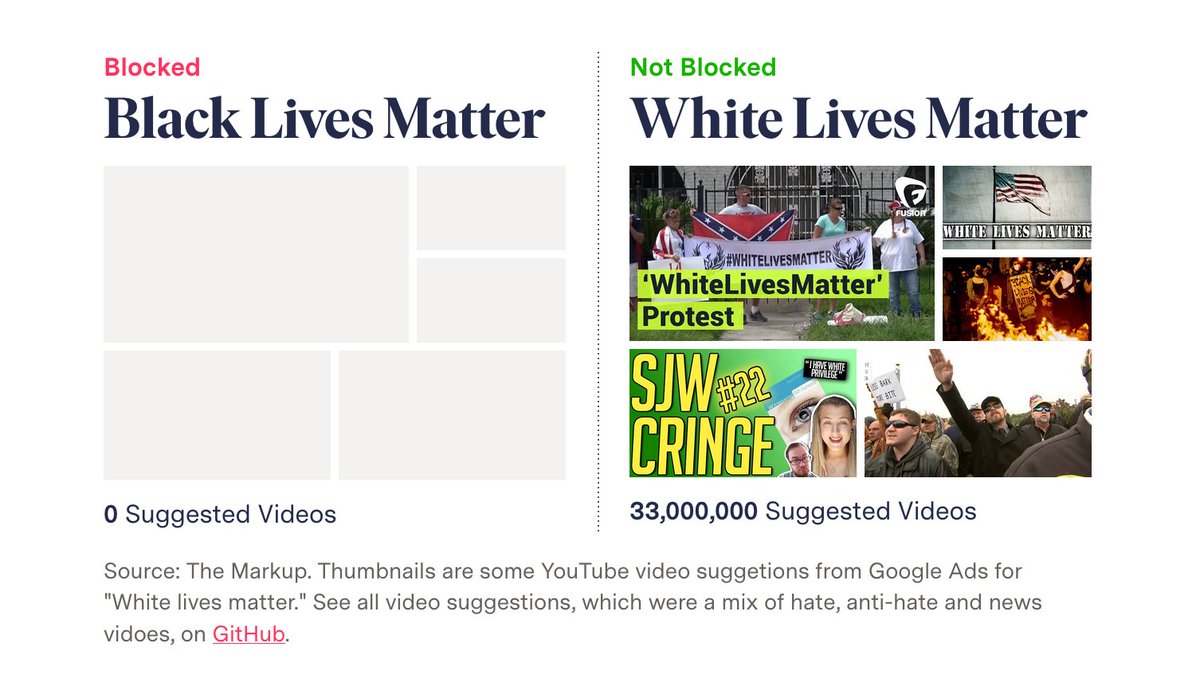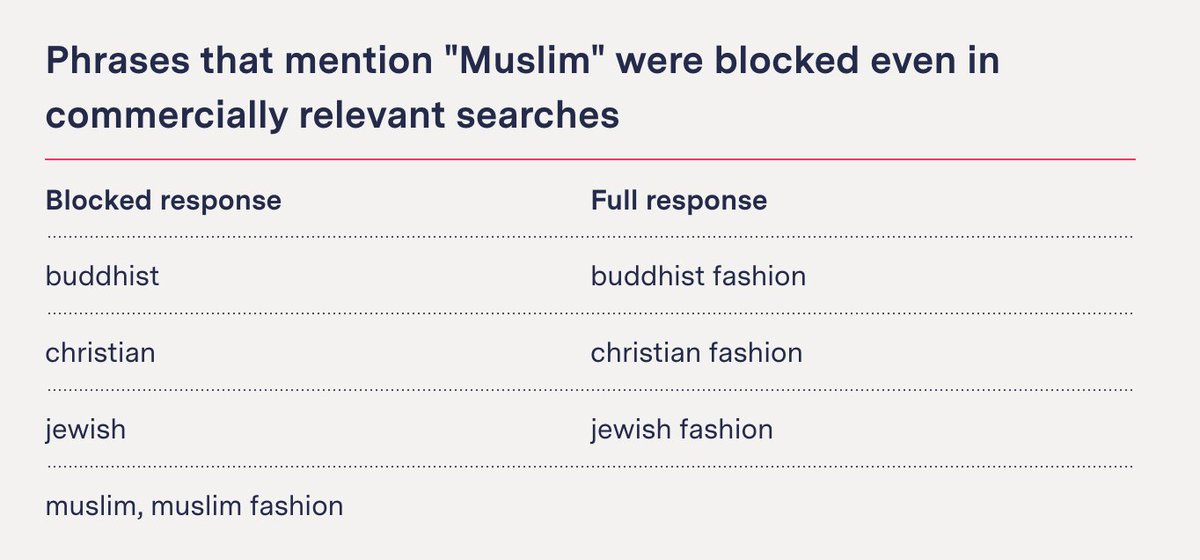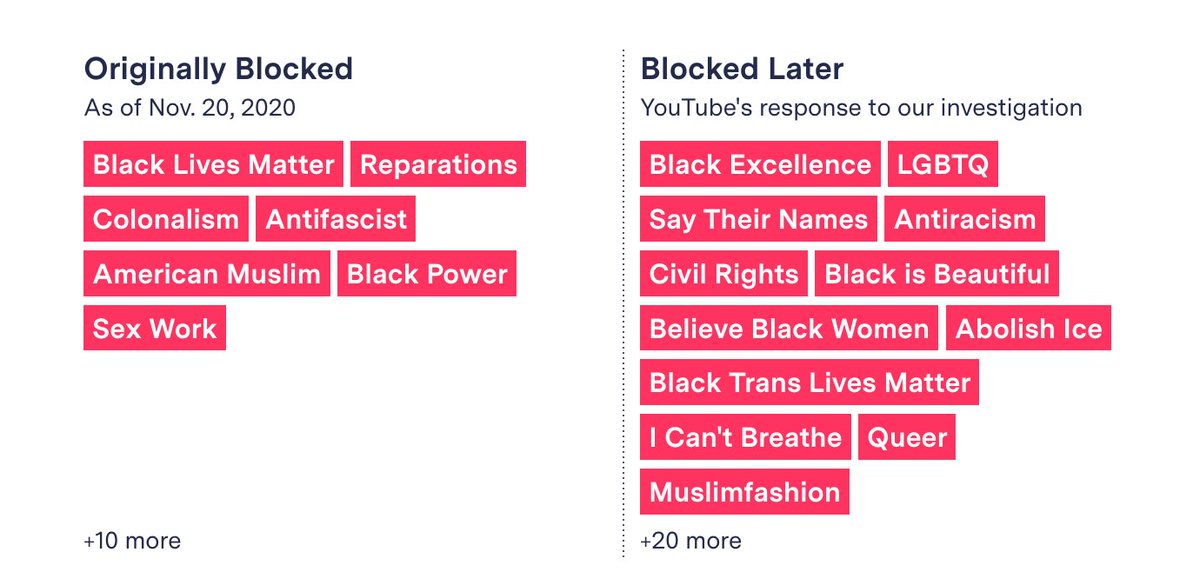
Facebook says top content on its platform comes from reputable sources like UNICEF, ABC News & the CDC.
But our #CitizenBrowser data shows that sensational partisan content from Daily Wire & The Western Journal are top performers. @corintxt reports:
themarkup.org/citizen-browse…
But our #CitizenBrowser data shows that sensational partisan content from Daily Wire & The Western Journal are top performers. @corintxt reports:
themarkup.org/citizen-browse…
Here’s the difference: Facebook measures “reach” - which is how many unique viewers saw each domain.
But we measured an equally, if not more important metric, “impressions” – which is how many times a piece of content is bombarded at users. /2
But we measured an equally, if not more important metric, “impressions” – which is how many times a piece of content is bombarded at users. /2
Measuring impressions shows a starkly different picture of what is popular on Facebook.
Using that metric, mainstream sites like UNICEF & USA Today drop off the popular list, and The Daily Wire & Fox News jump up the list. /3
Using that metric, mainstream sites like UNICEF & USA Today drop off the popular list, and The Daily Wire & Fox News jump up the list. /3

When asked about our metrics, Facebook spokeswoman said the company plans to ‘refine and improve’ its reports but did not say whether the company would eventually include impressions in its quarterly “Widely Viewed Content” reports. /4
One important thing we learned doing this research was that our Citizen Browser panel, while small, is actually a fairly representative sample of Facebook.
We found that, measured by reach, the most popular domains shown to our panel matched those in Facebook’s own data. /5
We found that, measured by reach, the most popular domains shown to our panel matched those in Facebook’s own data. /5
Data scientist @mynameisfiber used a metric called Kendall-Tau c-rank correlation to see how comparable our most popular list was to Facebook’s list. We found a strong correlation. /6 

@mynameisfiber also tested our data using another metric, the Spearman correlation coefficient, to show the similarity between the number of unique users seeing each domain.
Again we saw a strong correlation. /7
Again we saw a strong correlation. /7

This analysis allows us to conclude that our data is a good match to the released Facebook data and that our sample is sufficient for statistical relevance.
This is important given that Facebook has in the past claimed that our sample size was too small. /8
This is important given that Facebook has in the past claimed that our sample size was too small. /8
As always, we show our work and release our data. /9
github.com/the-markup/cit…
themarkup.org/show-your-work…
github.com/the-markup/cit…
themarkup.org/show-your-work…
And in an extra-special bonus, we are releasing a Twitter bot that will tweet out daily lists of the sites shown most frequently to our Citizen Browser panelists, and the sites with the greatest increase when ranked by impressions.
Follow our bot here! @citizenbrowser
Follow our bot here! @citizenbrowser
• • •
Missing some Tweet in this thread? You can try to
force a refresh









